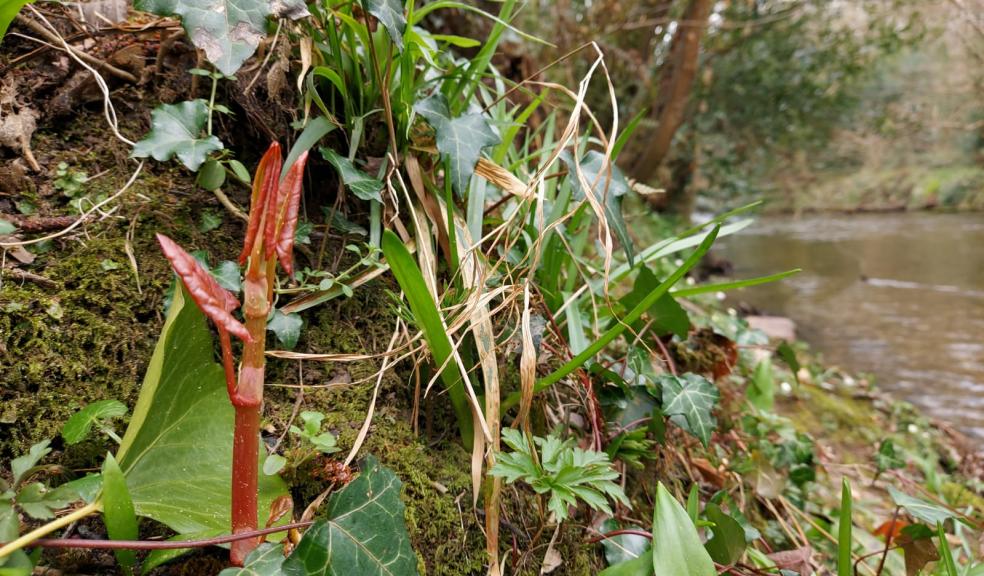
First Japanese knotweed shoots of the year spotted in Plymouth
The first Japanese knotweed shoots to emerge in 2021 have been spotted on the banks of the River Plym in Plymouth, Devon, confirming that the UK’s most invasive plant has begun its spring growth season.
Japanese knotweed hibernates during the winter months before emerging when the ground temperature reaches around 4°c, usually in March or April. Red or purple asparagus-like shoots sprout from the earth and quickly turn into green bamboo-like stems, growing at a rapid rate to reach approximately 3 metres in height by June.
The UK’s most invasive and destructive plant will now begin its annual assault on property foundations, driveways, patios, cavity walls and drains, impacting around 5% of the UK’s homes and knocking up to 10% off house prices.
Those who spot the plant can report the sighting on Environet’s Japanese knotweed heatmap, Exposed, a live tracker monitoring knotweed sightings across the UK. Members of the public can enter a postcode to discover the number of reported knotweed sightings nearby, with hotspots clearly visible in yellow or red. People are encouraged to report knotweed infestations using the ‘Add Sighting’ feature and attaching a photograph of the plant so it can be verified by experts.
Emily Grant, Environet’s Regional Director for the South West, said, “We’ve been on the lookout for the first knotweed shoots for a few weeks, but this cluster spotted on the banks of the River Plym are the first we’ve seen or heard of in 2021.
“Homeowners across Devon and Cornwall should be vigilant for the distinctive red or purple spear-like shoots emerging in their gardens or near their homes over the next few weeks, as the knotweed growing season becomes established. Those who discover the plant on their land should seek professional advice and put a treatment plan in place as quickly as possible, to preserve the value of their property and to protect themselves from the risk of litigation if the plant is allowed to spread.”
Environet offers a free Japanese knotweed identification service for anyone who wants to confirm whether or not a plant is Japanese knotweed, which is commonly mistaken for other harmless garden plants such as bindweed, Russian vine and lilac. Just email a photo to expert@environetuk.com.











